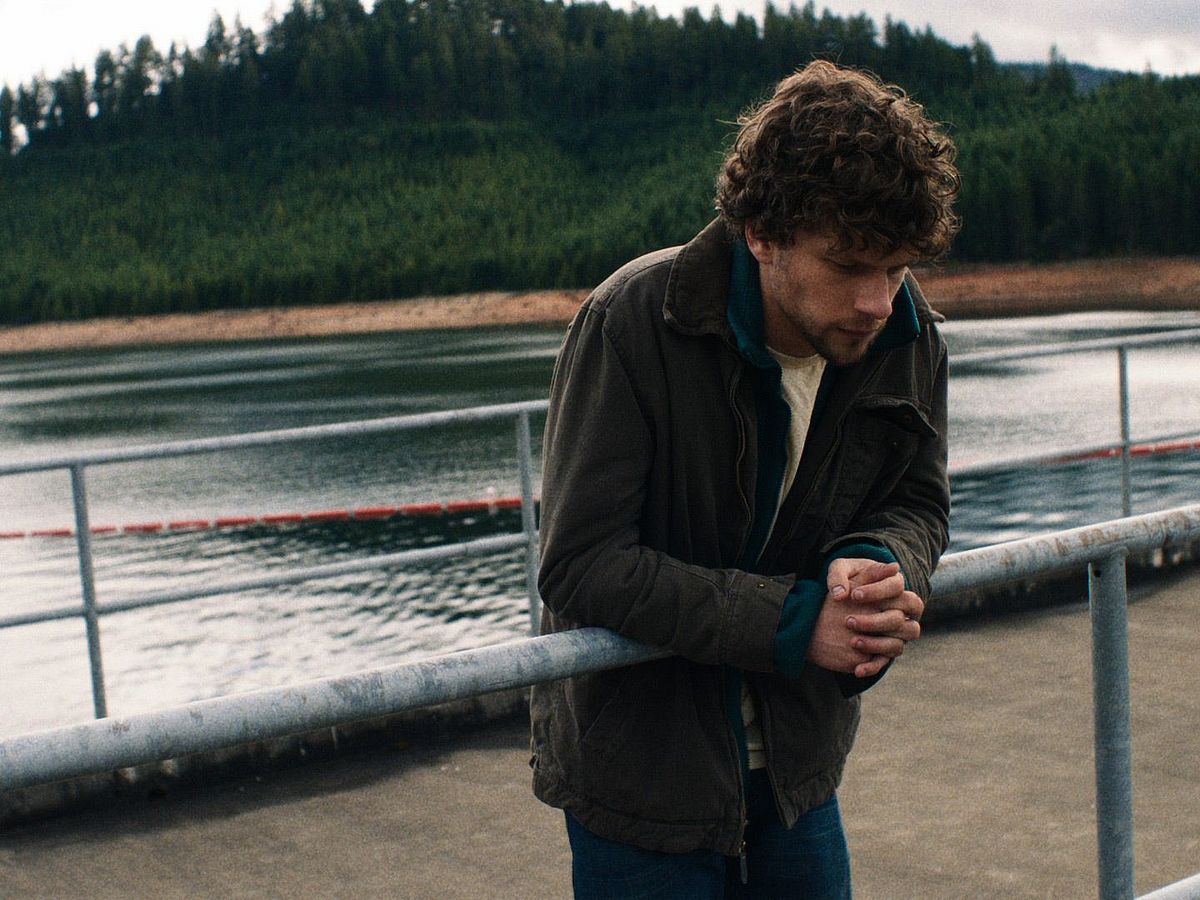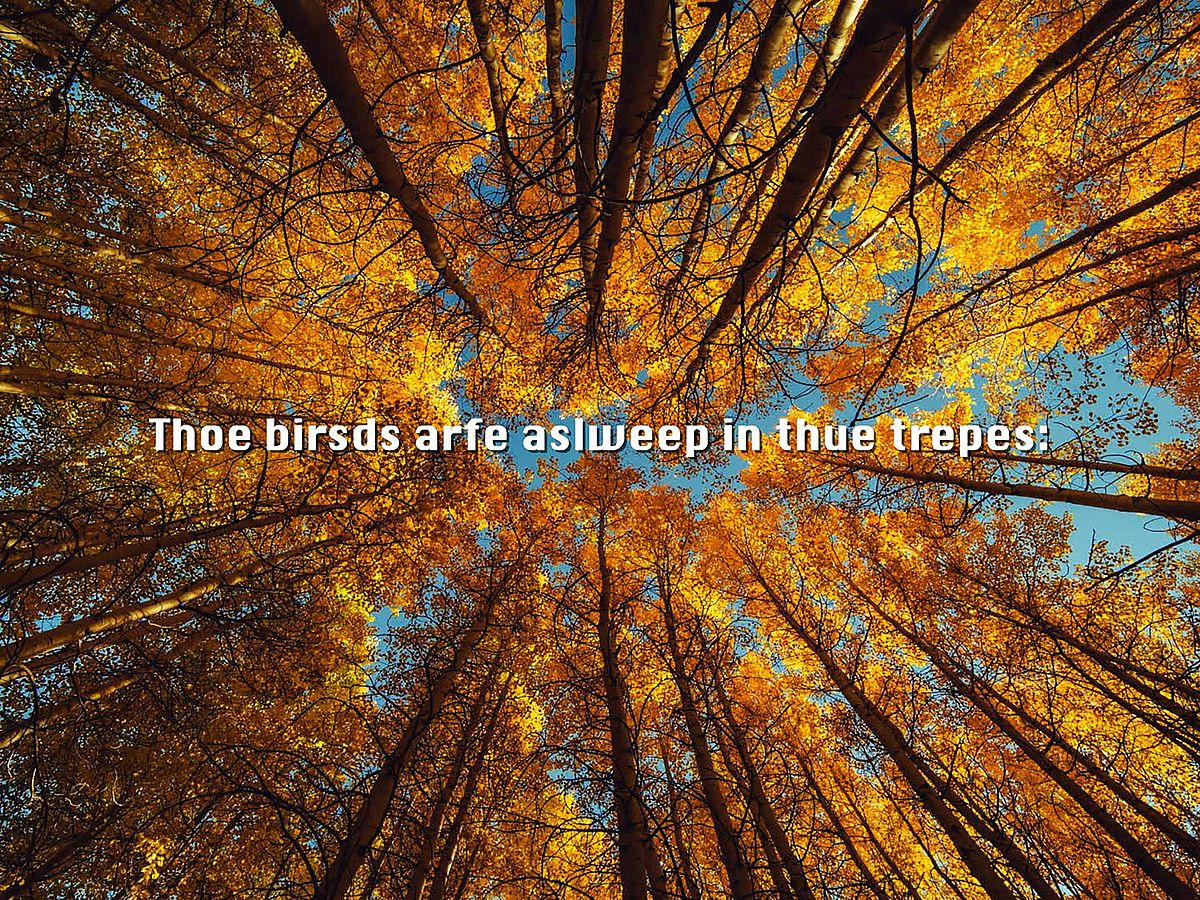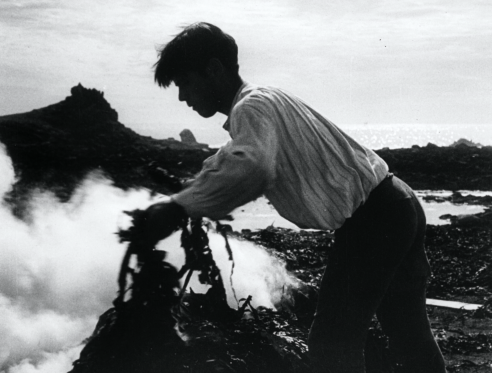Film Programme
24 FRAMES

FILM FOR KEYNOTE 1 // WED. 18.5. / 20:00
IRN/F 2017, director: Abbas Kiarostami, 114 min, no language
with introduction by Alice Kuzniar
For Godard, film is truth 24 times a second; for Michael Haneke, it is lies. What happens immediately before and after an image is created? Abbas Kiarostami returns to one of cinema’s fundamental questions in his latest film. With digital animator Ali Kamali, Kiarostami infuses 24 still photographs with time and movement.
In four-and-a-half-minute sequences, the movements are gradual: a column of smoke billows, leaves blow in the wind, cows sleep and crows land in the snow. Beyond the chapter markers, there is no narration, no text, no spoken word. By bridging the gap between photography, early film and modern CGI animation, Kiarostami creates a cinematic hybrid with a new kind of minimalist aesthetic that shakes us out of our viewing habits.
Press Commentary:
“The short films, created using digital techniques, combine to form a fascinating sequence of splendid impressions that always include the passing of time and the fleeting nature of existence. The images reveal the power of the enigmatic, which has an immediate effect on the viewer.” (Filmdienst)
EARTH

FILM FOR KEYNOTE 2 // THU 19.5. / 14:30
EARTH
AT 2019, director: Nikolaus Geyrhalter, 115 min, German/English/Hungarian/Spanish/Italian, original with German subtitles
In seven chapters, Nikolaus Geyrhalter documents industrial interventions in the geological tectonics of the earth. Precise framing shows the changes caused by levelling for urban construction and by drilling for tunnel construction, the structural preservation of a salt mine as a nuclear waste storage site and contemporary techniques for mining mineral resources such as copper, marble, lignite and shale oil.
The sheer scale of these machine-controlled processes to appropriate material resources and overexploit the foundations of human existence are captured in iconic moving images. Workers on the ground almost always have their say. The final chapter departs from this to focus on the perspective of local people affected by shale oil production.
Press Commentary:
“It is often said that the Blue Marble photo of Earth taken from the Apollo 17 mission in 1972 did much to sensitise us to the vulnerability of the planet. Geyrhalter’s film hones this vision with a close-up of the earth’s wounds and scars, which grow deeper daily in the Anthropocene.” (Silvia Hallensleben, epd-film)
SINGIN' IN THE RAIN

FILM FOR KEYNOTE 3 // FRI 20.5. / 14:30
USA 1952, director: Stanley Donen; Gene Kelly, with Gene Kelly, Debbie Reynolds, Donald O’Connor, 103 min, original with German subtitles
with introduction by Judith Keilbach & Skadi Loist
The transition from silence to sound poses a problem for movie stars Don (Gene Kelly) and his partner Lina (Jean Hagen). Her shrill voice does not seem made for the “talkies”. They come up with the idea of having Lina dubbed by the young actress Kathy (Debbie Reynolds). Lina does everything in her power to prevent Kathy from eclipsing her.
Singin’ in the Rain is as light on its feet as Gene Kelly dancing through the rain. Iconic images aside, the musical reflects the cinematic creative process in Hollywood’s studio system. It shows how the film industry uses natural resources.
DERSU UZALA

FILM FOR PANEL 1 // THU 19.5. / 20:00
USSR/JPN 1975, director: Akira Kurosawa, with Maksim Munzuk, Yuriy Solomin, 144 min, original with German subtitles
with introduction by Tina Kaiser
In 1902, the Russian captain Arseniev, head of a cartography brigade, meets the hunter Dersu Uzala, who then guides them on through the Siberian taiga. One of cinema’s most beautiful intercultural male friendships is created through their shared experience of and survival in nature.
The underlying tone of the film is humanist, and it resonates throughout with the melancholy of lost worlds and friendships. The taiga confronts the pair with overwhelming beauty, but also with epic challenges, subtly working out the characters’ opposing conceptions of nature.
In her talk, Tina Kaiser asks how cinema can sensitize its audience to ecological issues.
Press Commentary:
“One of the most beautifully composed and photographed of Kurosawa’s films, Dersu Uzala visually illustrates its theme […]: Man is too small to face the vastness of nature.” (Donald Richie, Criterion)
FINIS TERRAE
FILM FOR PANEL 1: SILENT FILM WITH LIVE MUSIC // FRI 20.5 / 20:30
F 1928, director: Jean Epstein, with Ambroise Rouzic, Jean-Marie Laot, 80 min, silent film with English intertitles
with introduction by Simone Winkler
with live music conducted by Ezzat Nashashibi
Off the rugged Breton coast, four men live alone on the island of Bannec to fish for seaweed. An argument and a life-threatening injury lead to a risky rescue operation.
This simple story enables Epstein to portray the work of the fishermen and their everyday life, which pivots around nature. The feature film was shot on original locations and with residents of the fishing village of Ouessant, so it feels very like a documentary. Expressive, dramatic use of a handheld camera and light capture the violent forces of nature in impressive black and white images.
In her talk, Simone Winkler reflects on the natural backdrop of silent film as a site that negotiates a medialised historical conception of nature in Western modernity.
A trio with horn, piano and double bass provide live musical accompaniment, conducted by Ezzat Nashashibi. The music moves between the rugged coastal landscape and the individual feelings of the protagonists.
NIGHT MOVES

FILM FOR PANEL 2 // FRI 20.5. / 22:30
USA 2013, director: Kelly Reichart, with Jesse Eisenberg, Dakota Fanning, Peter Sarsgaard, 112 min, original with German subtitles
Faced with the earth’s ongoing destruction, environmental activist Dena has had enough. With her good friend Josh, who lives in an agricultural collective in the northwestern USA, she wants to make a statement that will shake people up. Ex-Marine Harmon helps them plan to blow up a hydroelectric dam in Oregon that is destroying the river and its valleys. But when something goes wrong, the three have to face the consequences of their militant action.
A suspenseful eco-thriller, in which US independent director Kelly Reichart skilfully combines meticulous observation with precise staging. With disturbing intensity, she shows the heavy burden of idealism and individual responsibility.
In his talk, Matthias Grotkopp discusses the poetics with which cinema processes the tensions between the space of experience and the horizon of expectations, which climate crisis has intensified, to create new perspectives, perceptions and temporalities.
Press Commentary:
“Like the best thrillers, Night Moves transposes individual anxieties into larger contexts; like realism, it trains the eye to the significance of seemingly trivial gestures and details. And like any outstanding film, it asks the very big existential questions without imposing them on the viewer.” (Julia Dettke, Die Zeit)
FILM:ART 93: LEAVES TREMBLE, TIME STANDS STILL


FILM PROGRAMME // SAT 21.5. / 14:30
curated and presented by Christine Rüffert (Bremen)
Unlike feature films, in which nature is usually depicted to further the plot, experimental films have always placed natural phenomena at the centre of their aesthetic enquiries. Timelapse shots stage the sun’s rays slanting through the leaves of the trees to create the physical sensation of being in the forest or transform clouds drifting in the sky into a transcendental meditation. Beyond this immersive cinematic experience, some of the films shown have a more reflective character and address the relationship between humans and nature in the Anthropocene. The forms range from a surreal storm of images to a deconstructed Goethe poem, an essay on territory and a media-philosophical desktop video.
Films:
Aspect
Emily Richardson, UK 2004, 9 min., no language
The Machine
Marieke van der Lippe, NL 2020, 16 min., German with English subtitles
Le Rêve
Peter-Conrad Beyer, D 2020, 8 min., no language
Imperial Irrigation
Lukas Marxt, D/A 2020, 21 min., English
Un très long temps d'exposition
Chloé Galibert-Laîné, F 2020, 7 min., with English script
Programme length 90 min


